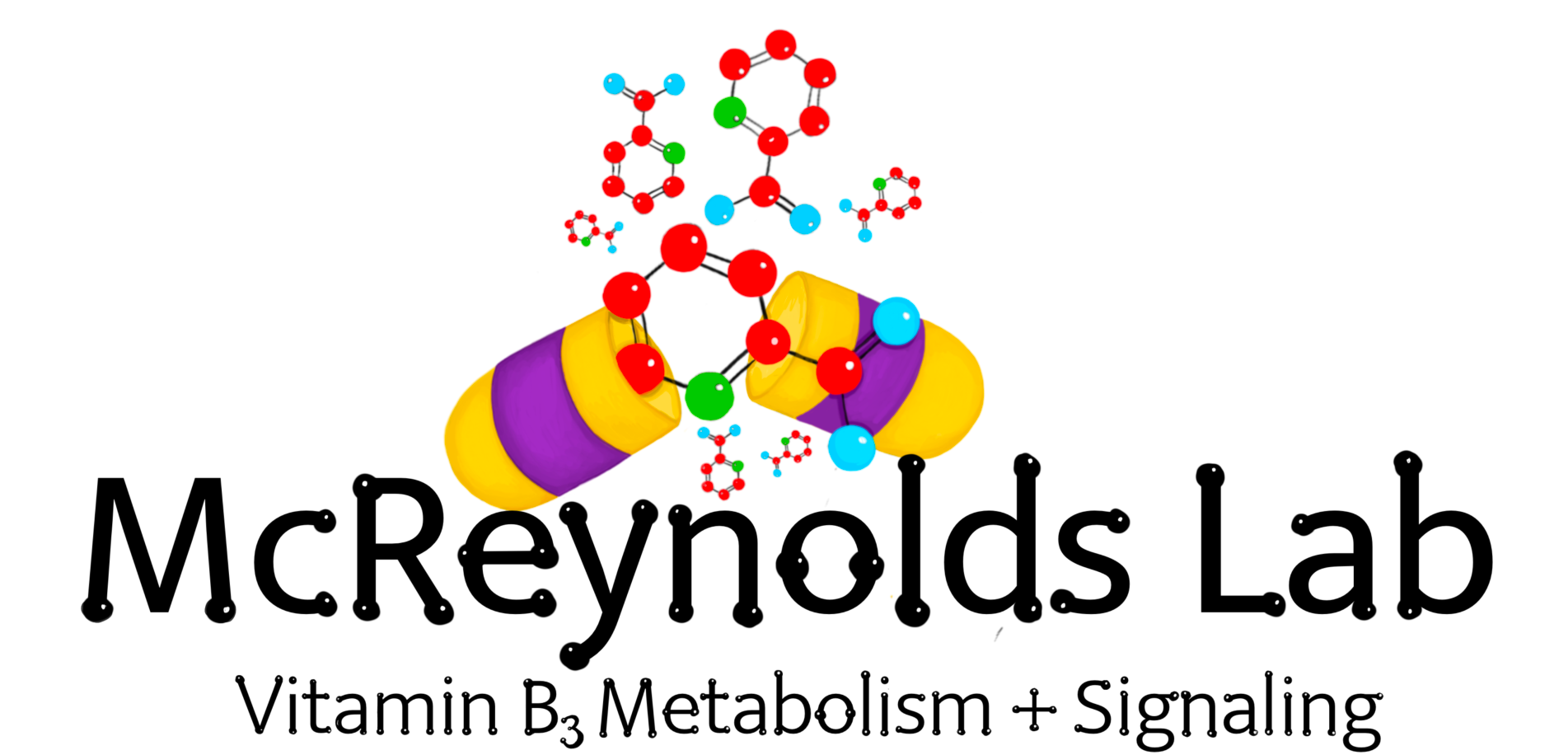What We Do
The McReynolds lab is broadly interested in understanding the biochemistry behind aging, and its intersection with stress, with the long-term goal of identifying strategies that promote healthier aging. Aging is the strongest risk factor for the most prevalent diseases in developed nations, including cancer, diabetes, cardiovascular, and neurodegenerative disorders. Demographics are projected to continue to shift toward aged individuals within our population. Therefore, to identify mechanisms that will promote healthier aging, our research program aims to explore the intersection between metabolic decline and aging. Characterizing metabolic adaptation to acute and chronic stress in aged-related disease models will help illuminate age-related metabolic defects and reveal metabolic homeostasis mechanisms.
As scientists working at the interface of chemistry and biology, our research program will take advantage of high-resolution liquid-chromatography mass spectrometry (HR-LCMS) coupled to in vivo isotope tracing to:
- elucidate how NAD+ homeostasis is achieved and fails over the lifespan
- uncover how toxic circulating small molecules contribute to aging and aged-related disorders
- reveal stress-induced metabolic alterations in aging and aged-related disorders
We hope to discover how NAD+ homeostasis is achieved, and more generally how metabolism responds to stress-induced perturbations. By improving our understanding of the in vivo metabolic fluxes that occur in stress-induced aged models, we expect to uncover targetable molecular mechanisms that will enable the development of therapeutics and nutraceuticals to restore youthful metabolism.


